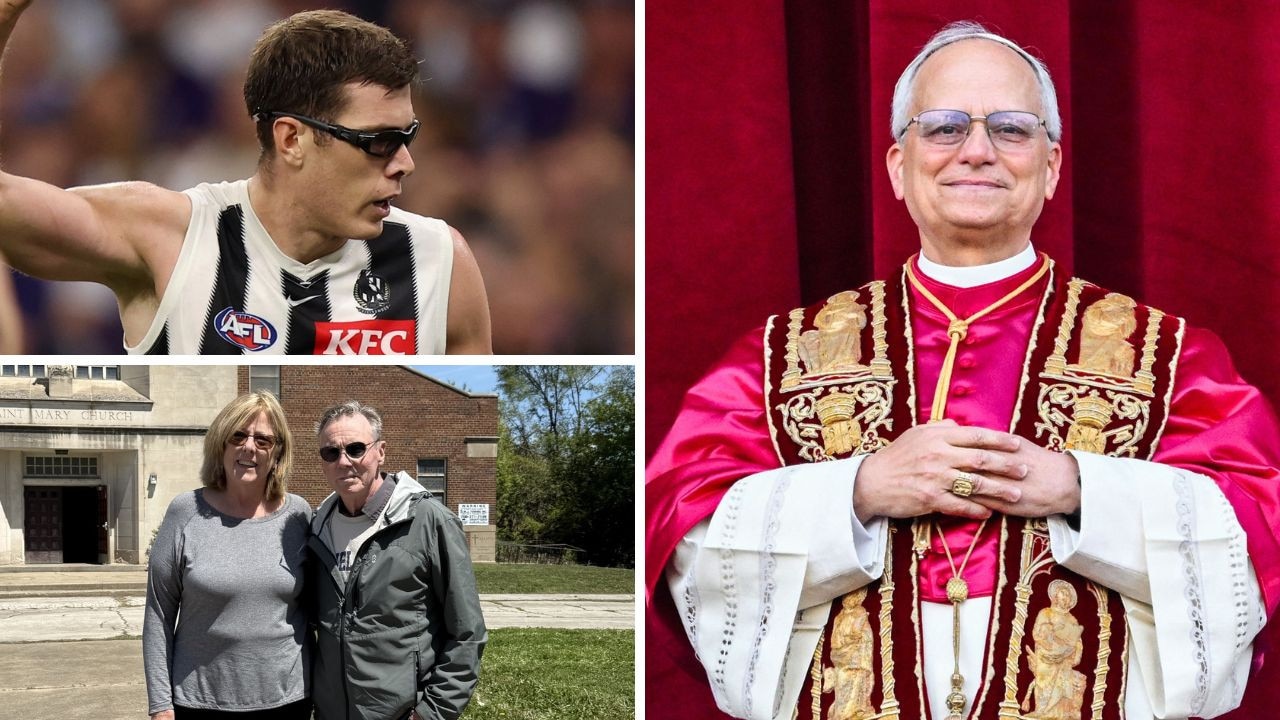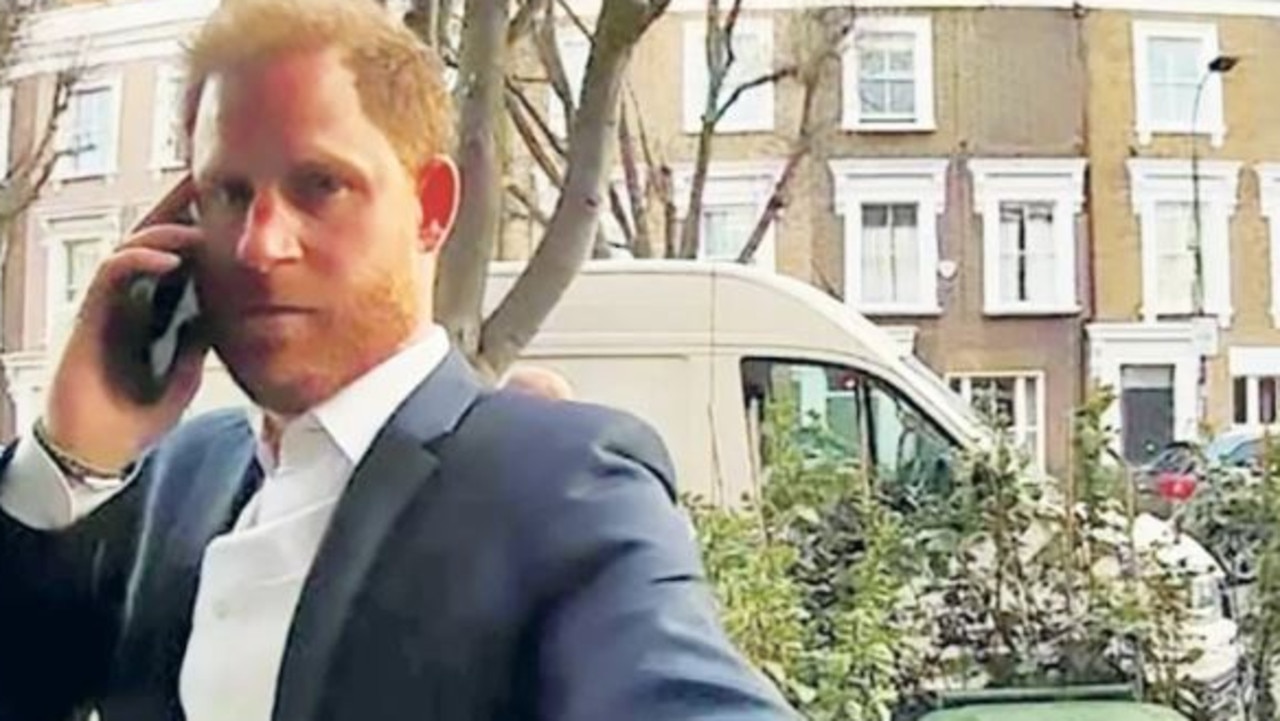Aussies face more challenges as they rebuild after losing their homes in the Los Angeles wildfires
Within seconds, they lost their homes to the raging flames, but these brave Aussies are determined to do whatever it takes to rebuild. SEE THE PHOTOS, VIDEO
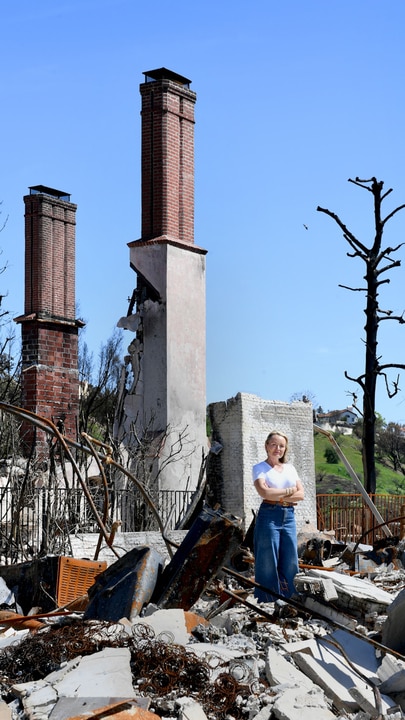
North America
Don't miss out on the headlines from North America. Followed categories will be added to My News.
When the Australians who lost their homes in the devastating California wildfires reflect on the tragedy four months on, it’s not the memory of their expensive material losses that are the most painful.
For Melbourne woman Alina Kiessling, who lost the beloved Altadena home she shared with her husband Jason and four-year-old daughter Blaise, it’s the Christmas ornaments gifted and collected over a lifetime that hit the hardest.
“There were things that my family and my husband’s family had given us as children, my husband’s mother gave him an ornament every year, she kept a log of each one and why she’d given it to him, and we have started doing that with our daughter,” she said.
“They might be $3 ornaments but they are priceless to us.”
For Queensland-born actor Ben Rigby, it’s the seashell collection that represented precious memories of the places he’s travelled.
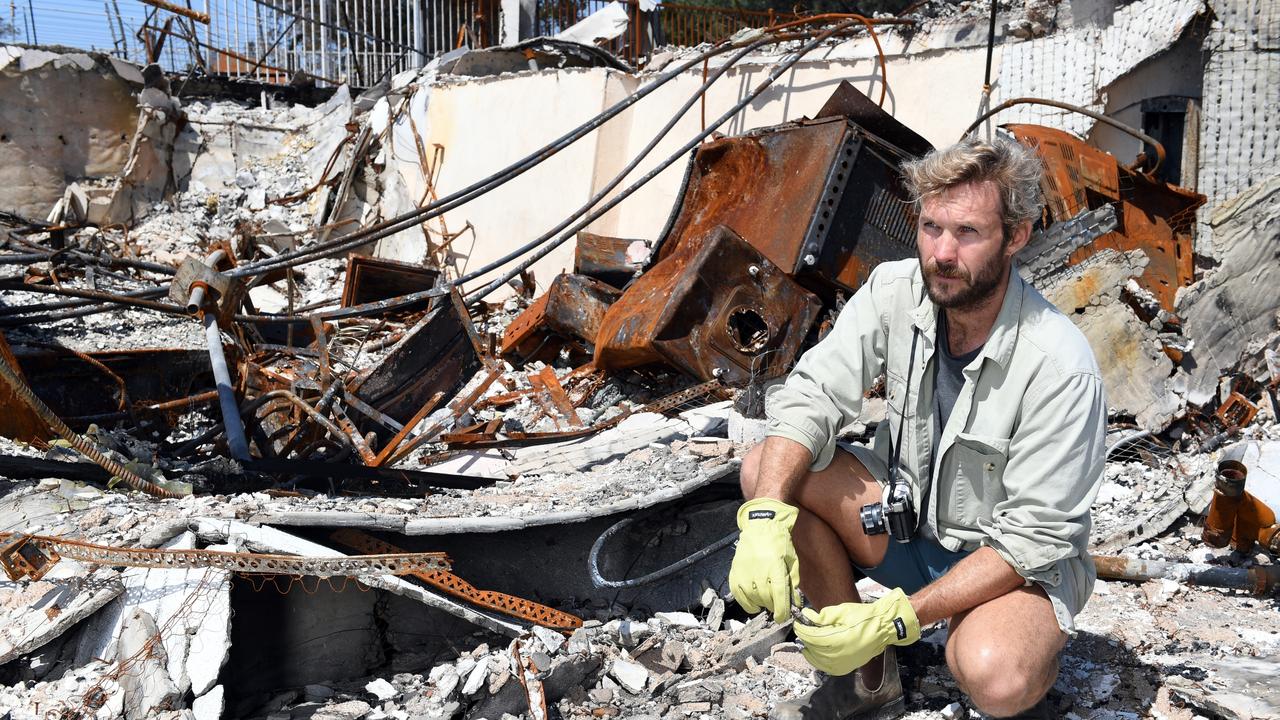
Sifting through the remains of his Pacific Palisades apartment, he wept when he found a single fragile shell he collected in New Zealand intact, one of the few things he was able to recover from the home he has shared for the past six years with husband Daren.
And for Kate Vale, whose family home in the Palisades was destroyed, it’s the loss of a beloved community where everyone knew their neighbours and children would flit from house to house playing together.
Her daughter’s school and the cafe where they’d grab a Sunday morning coffee are gone.
So is the back deck with views of the Pacific Ocean where family and friends would gather for celebrations.
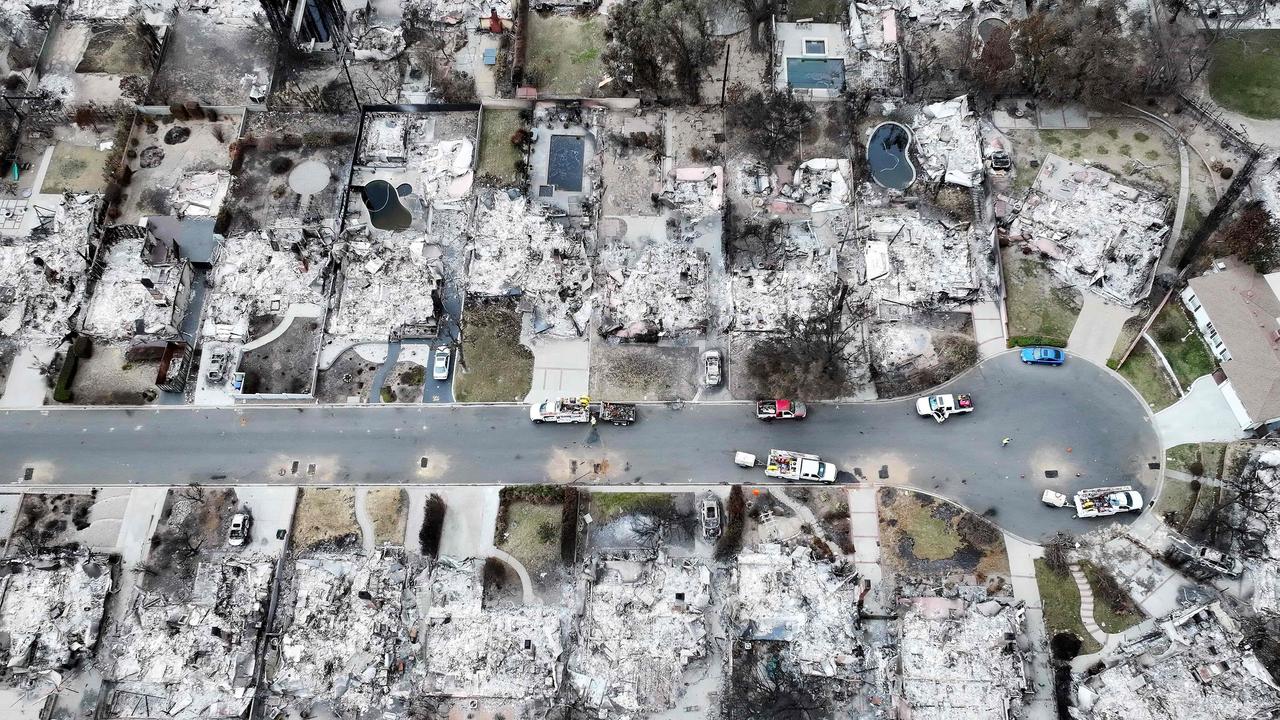
Four months after the news cameras stopped rolling on the highly publicised natural disasters that claimed 20,000 homes and left 30 dead, the recovery process is excruciatingly slow for those still living in the nightmare.
If former Sydneysider Ms Vale is going through the five stages of grief, she’s stuck firmly in the second step - anger.
In fact, she’s furious.
Months before the horror inferno she, along with many of her neighbours, received a letter from her long-time insurer cancelling the policy she paid $120,000 a year for, blaming an issue with the home’s roof tiles.
Ms Vale and her husband Justin Viles fought the decision, with three roofers inspecting the property and collecting aerial footage to dispute the cancellation but their pleas fell on deaf ears.
In a horribly ironic twist, those roof tiles are one of the few things that survived the blaze, still intact and recognisable among the charred rubble where their house once stood.
And it is still a pile of rubble. It could take at least another six months just to clear the debris before homeowners can even consider rebuilding.
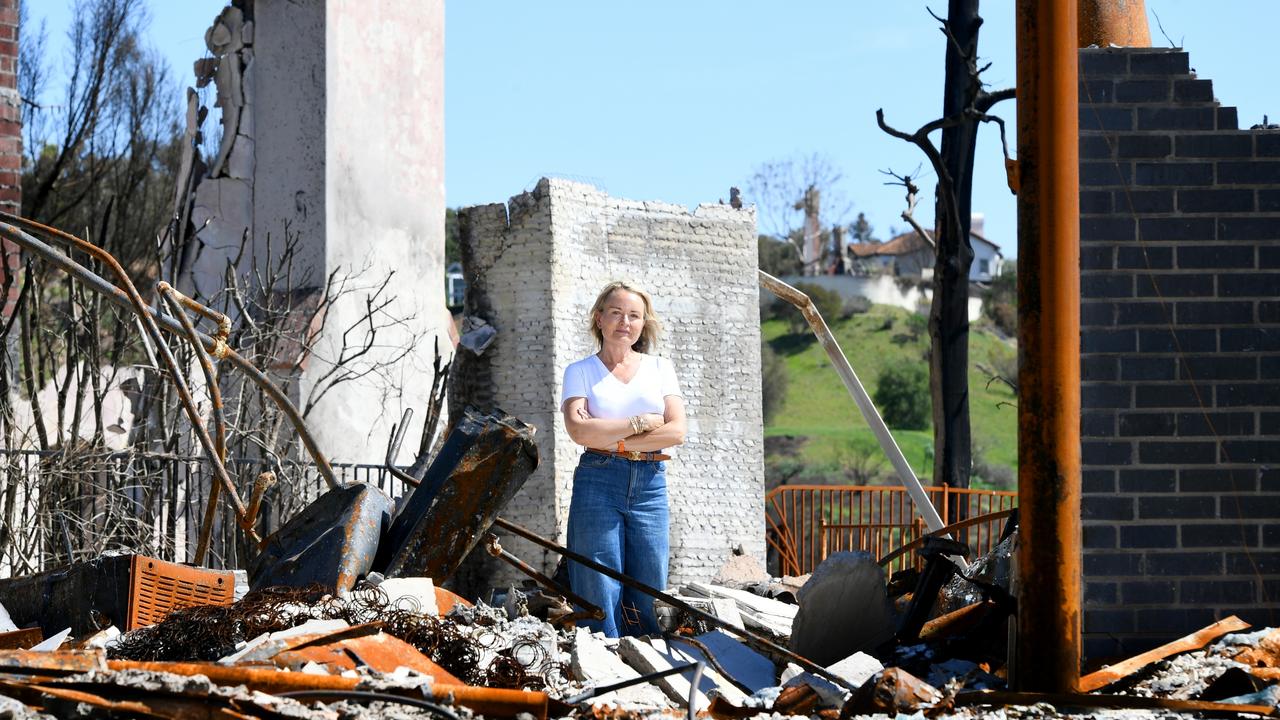
And then they are confronted with a tangle of bureaucratic red tape, a shortage of builders, and skyrocketing material costs amid the cost of living crisis and ongoing trade war.
The recovery has also become a political football, with Donald Trump attacking California Governor Gavin Newsom’s handling of the disaster and vowing in January to expedite the recovery.
But four months on, only seven building permits have been approved for homeowners trying to repair and rebuild.
Water reserves ran dry during the disaster, leaving firefighters powerless to battle the ferocious blazes.
“It was going to cost $140,000 to refill a reservoir and it went up to a board meeting and they knocked it back, it’s crazy,” she said.
Mrs Vale and her family are now renting a home in nearby Venice, along with many other displaced Palisades fire victims who have dubbed the suburb the ‘Venicades’.
“Rebuilding is going to be a very costly exercise if that’s what we choose to do because insurance won’t cover what we need to rebuild,” she said.
“I feel like a lot of people have forgotten about the victims of the fire…”.


On January 7, the family evacuated to a hotel as the infamous Santa Ana winds fuelled what would become one of the worst wildfires in California history.
They watched in horror on their security cameras as their back deck ignited, but out of nowhere, firefighters arrived and extinguished the blaze.
But their relief was short-lived. The next morning, another fire broke out and this time they would not be so lucky.
“I watched on the ring camera, all of the trees out the front started to ignite and I heard all of the smoke alarms in the house go off…,” Ms Vale said.
She watched the kitchen fill with smoke before the cameras went dead.
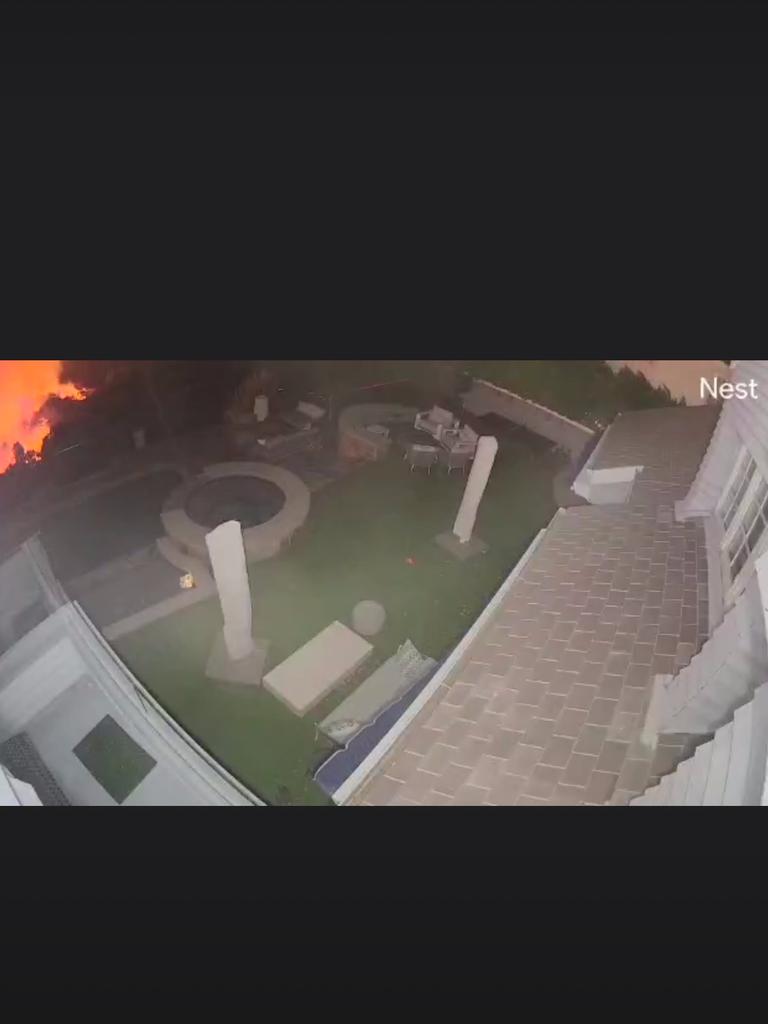

“Then my husband and I were sitting in the hotel room watching the local news and we saw chopper footage over our area and managed to see our house had been totally burnt down, a total loss, along with all of my neighbours in the court here,” she said.
Mrs Vale said calling her neighbours to deliver the devastating news their homes were gone had been the most difficult part of the tragedy.
“That was the 8th of January very early, we believe our house burned down around 7.30am and also my daughter’s birthday and a day we will never forget.”
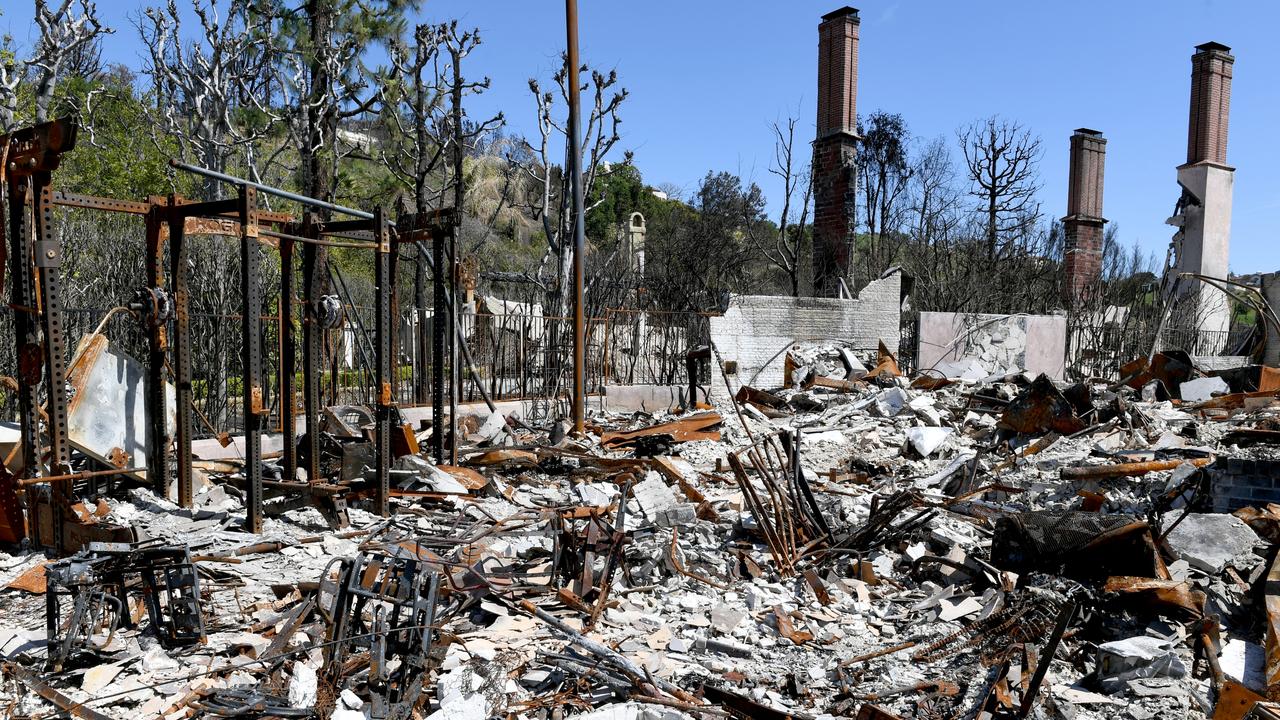
That same morning about 60 kilometres inland in the foothills of the Angeles National Forest, fellow Australian Alina Kiessling shook her husband Jason awake at 2am.
“I’m not comfortable with what’s going on, I think I’m going to start packing some stuff,” she quietly told him as their daughter Blaise, 4, slept peacefully between them.
They’d moved the little girl into their bed for the night, concerned a large tree near her own room could fall in the strong winds raging outside.
They had been monitoring fires in the area but Jason checked the disaster alert app - “they’re not even giving us a warning, just go back to sleep and we’ll check again in an hour,” he told her.
Call it a mother’s intuition or the experience of Australian bushfire seasons, but Ms Kiessling, then 17 weeks pregnant with twins, put her foot down and the pair began moving through the house packing a haphazard evacuation bag.
Ms Kiessling was still packing when her husband went to move the car outside in case they lost power to the garage door.
“He went outside to do that, and the scene that he was met with was such a hellscape,” she said.
“It was zero visibility, howling 80 mile an hour winds.
“He came back inside and said ‘this is no longer a packing exercise, we leave now, you put on your mask, put a mask on our four year old, whatever we’ve got now is what we’ve got, we leave now’.”
It was 3.20am when the family pulled out of their driveway. Five minutes later an evacuation “go now” order came though.
“So we never got a warning,” she said.
“It just went straight to ‘you have to leave now’.”
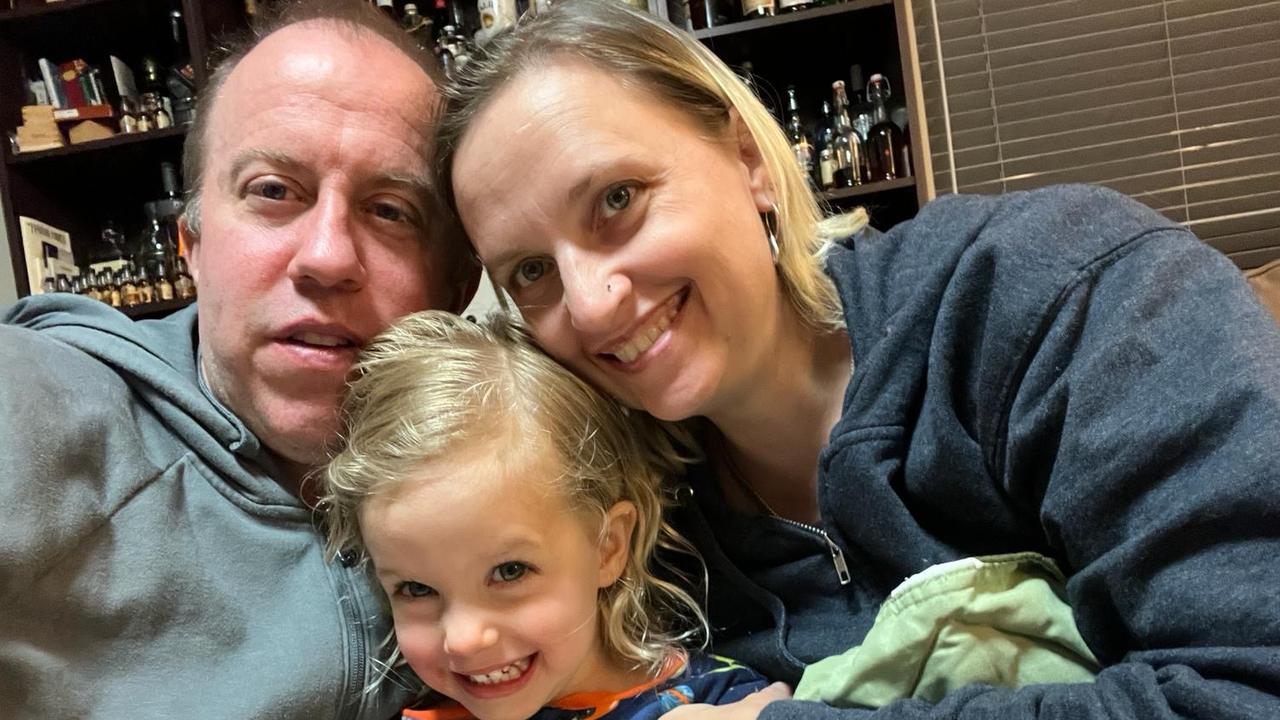
They were sitting at Jason’s sister’ house about two suburbs away at 5am when, only 90 minutes after they left, every alarm in their house triggered within the space of four minutes.
“That’s when we knew that the house was gone,” she said.
Despite the long and expensive road that lies ahead, the couple is determined to rebuild and return with Blaise and their twins, due any day now, to the property they purchased in 2013, a place they bought “where we could see ourselves growing old”.
In the meantime, they’re renting a house close to NASA’s Jet Propulsion Laboratory where they both work, and slowly trying to rebuild what they’ve lost.
Every day is a new gut punch when they remember another piece of their lives that is gone.
“We’re really not looking forward to Christmas,” Ms Kiessling said.
“We’re just going to feel devastated when we try to decorate our tree with ornaments that don’t mean anything.”
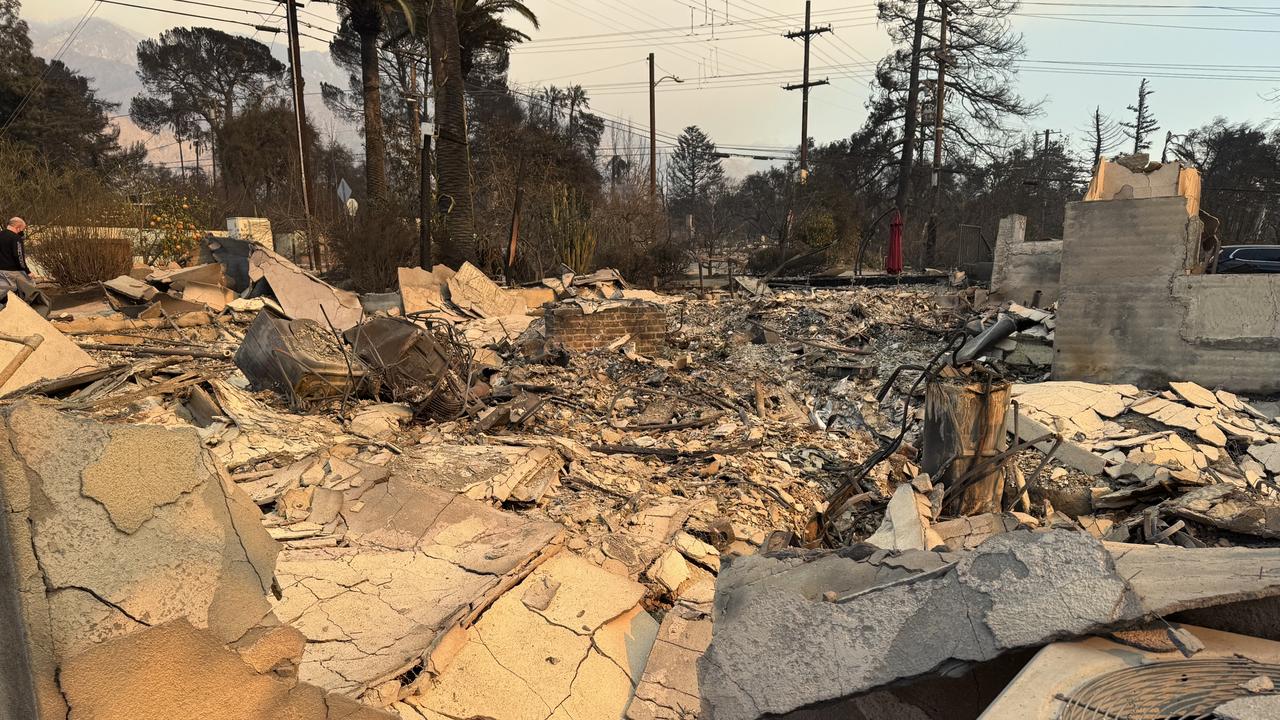
Those ornaments, Jason’s late father’s stamp collection, the carpets collected on travels to the Middle East, India and Morocco, and all of little Blaise’s toys are gone.
“She’s not old enough to have really deeply missed things that she lost but since the fires she has received gifts non stop which is very sweet,” Ms Kiessling said of her daughter.
“There have been some tough moments early on before she had a lot of stuff, we were staying in temporary housing the week after the fire and she wanted to take everything that she owned to daycare.
“We were like, what’s going on, you can’t do that, and she said: ‘Well, I don’t know if it’s going to be here when I get home’, and that was heartbreaking.”
Ms Kiessling said the family had been overwhelmed by support, including from their insurance company, government recovery agencies and from friends, family and the wider community.
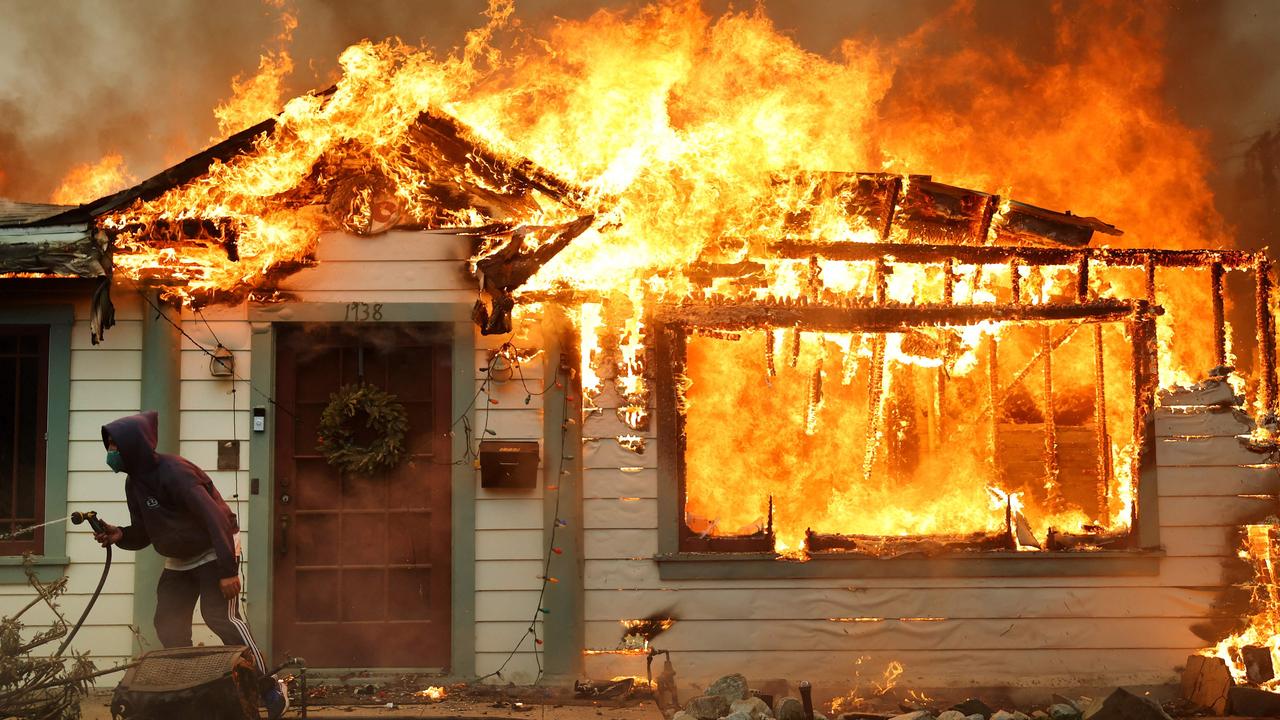
That extraordinary support is what has kept Queenslander Ben Rigby and his American husband Daren in Los Angeles after the Pacific Palisades rental apartment they had shared for six years was destroyed along with all of their belongings.
“Like a lot of people my first instinct when something bad happens is to run away and after the fire I was like, let’s move to New Zealand,” Mr Rigby said.
“But then the way that Los Angeles showed up for us, people were just so generous and opened their hearts and wallets and homes, I was like, oh, I want to stay here.
“It made us feel like we’re Angeleno’s now and that we’re a part of the fabric of that story and we have a community.”
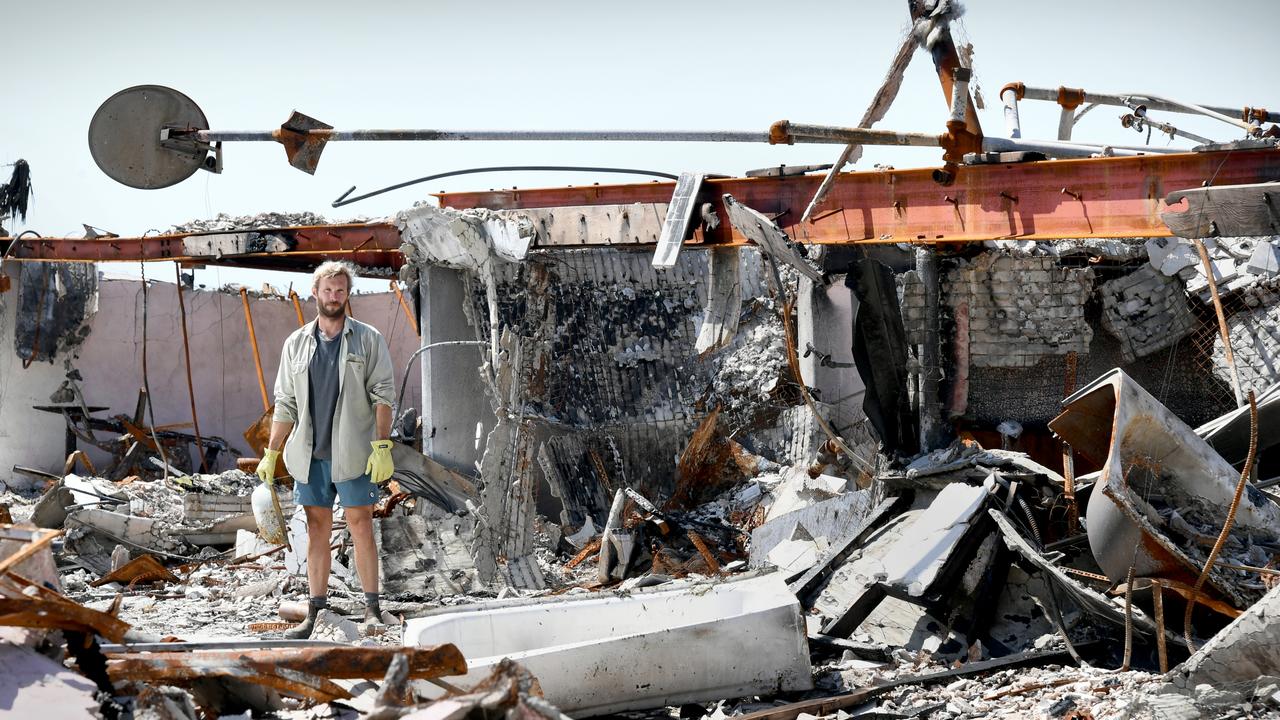
The Pacific Palisades fire attracted widespread media attention due to its many celebrity residents who lost their homes including actors Miles Teller, Billy Crystal and Adam Brody.
Mr Rigby, a photographer and actor who has had roles in Hollywood films including Lion and Alien: Covenant, challenged the misconception that all of the victims were wealthy and could afford to rebuild.
“A lot of people when this happened were like ‘Ben Rigby, celebrity’ - dude, I’ve been in like, two big movies, and actors don’t make much money,” he said.
“I moved here because there’s opportunity but there’s been a strike and Covid, I’m lucky to have had any work in the past year.
“We fought tooth and nail for this rent controlled apartment for a long time … we nearly lost it so many times because we’re freelancers and you’re down to your last 50 bucks and then a job comes through.”
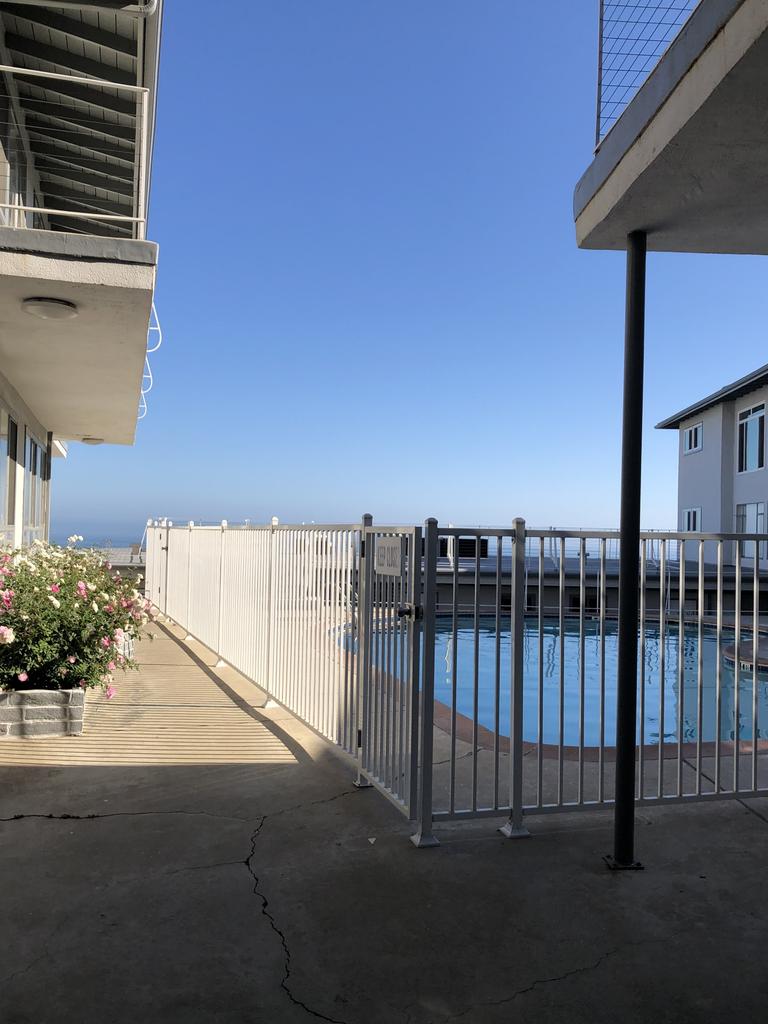
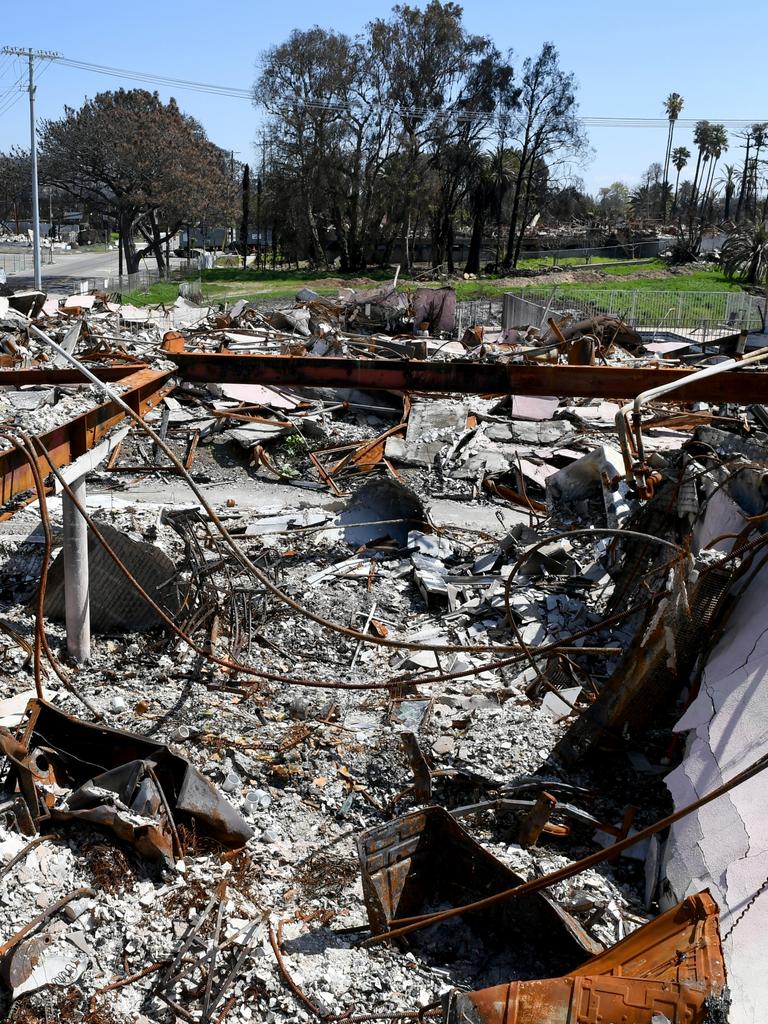
The couple, who were both out of town on work projects when the fire hit, lost everything.
But Mr Rigby said they were still better off than a lot of people.
“It’s a lot to take in when you see it (the disaster zone), your brain does this weird thing where you’re processing it and you have to block it out at the same time but occasionally you’ll see the reality of it when you see an elderly person or a disabled person looking at their house,” he said.
“We’re lucky that we’re able bodied, we’re youngish, we can still work.”
Wildflowers have begun sprouting in the rubble of the apartment block where Mr Rigby used to live, a welcome spot of colour among the rusting metal and blocks of concrete.
He points to one piece of metal - “that was my car”. Another piece of metal - “I think that was our fridge”.
In a moment of short-lived triumph, careful not to inhale the toxic dust, Mr Rigby gently pulls a dutch oven from the area below where his kitchen would have been - “it’s our Le Creuset”. But on closer inspection, he realises it’s not his.
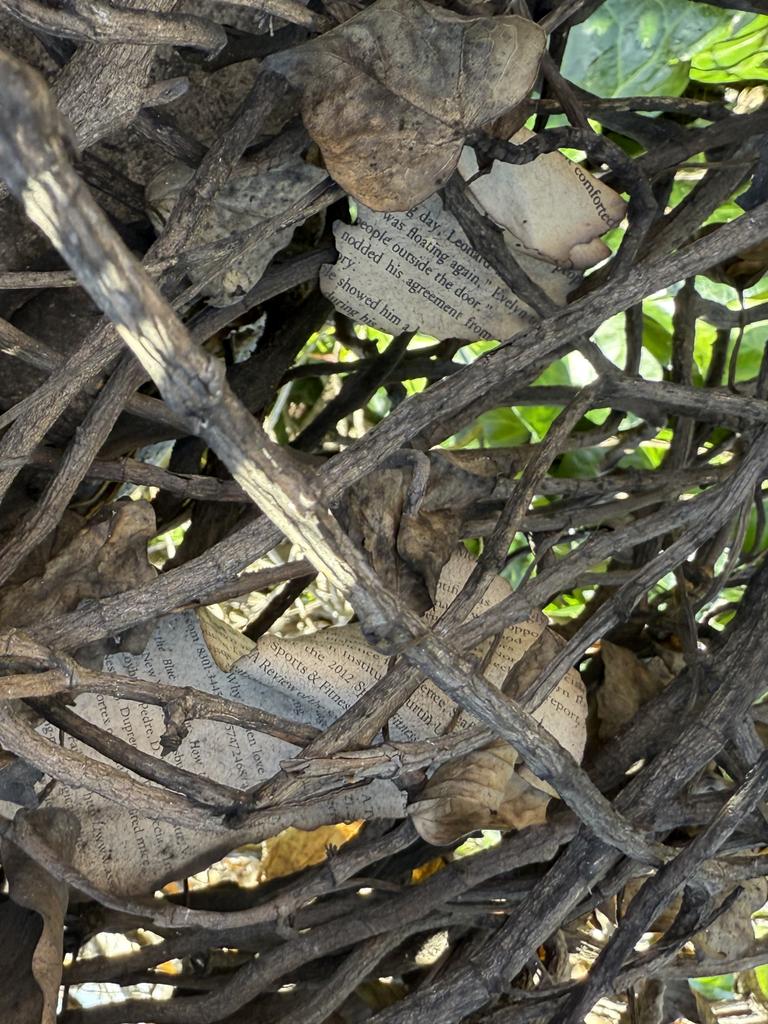
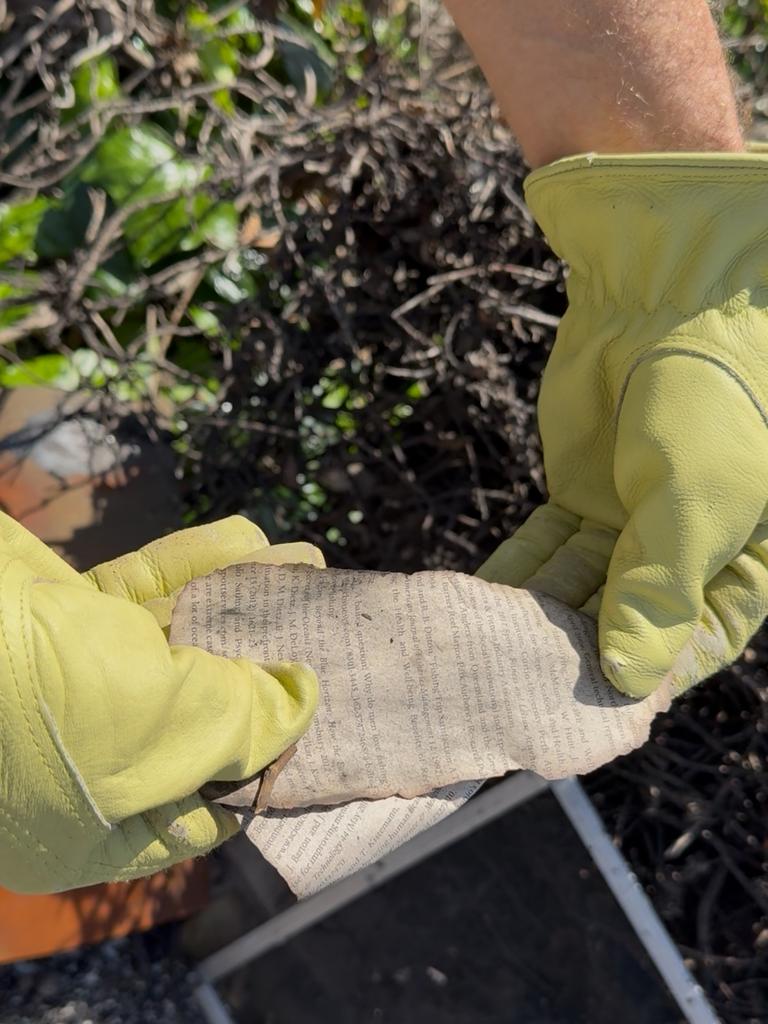
About 40 metres from where his second story apartment was, a row of charred hedges demarcates the boundary of the block before a sheer drop off downhill toward the ocean.
There, nestled deep in the branches he finds singed pages from Daren’s books, their edges blackened as if designed by a Hollywood prop master.
“Australia from Queensland on the Great Barrier Reef,” the words visible on one piece read.
On another page written in bold letters there is a single word - “grief”.
TO DONATE
Support the Caltech Disaster Relief Fund
More Coverage
Originally published as Aussies face more challenges as they rebuild after losing their homes in the Los Angeles wildfires



